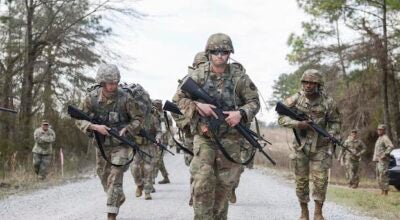Soul Shop for Black Churches: Workshop to address suicide in Black community
Published 11:01 am Sunday, April 16, 2023
|
Getting your Trinity Audio player ready...
|
By Rita Lebleu
American Press
The role of the Black Church has always been pivotal. More than a place of worship, the Black church continues to be a foundation of religious, political, economic and social life for the Black community, impacting American history. Now, Southwest Louisiana faith-based leaders are taking on the challenge of saving lives and bringing hope to those affected by suicide desperation.
On Friday, May 12, the Kay Doré Counseling Clinic and the American Foundation for Suicide Prevention will host Soul Shop for Black Churches at the SEED Center at McNeese State University.
This one-day workshop, conducted by a trained facilitator, is designed to equip clergy, staff, lay pastors, and faith-based clinicians with the resources and guidance they need to discuss suicide and foster hope and healing in their communities.
“This is the first time this program has been offered in Louisiana,” said Kevin Yaudes, University of Louisiana System Mental Health Content Expert McNeese State University Assistant Department Head, Psychology & Counseling and Kay Doré Counseling Clinic Faculty Advisor.”
Interested individuals must register at https://lasoulshopmay2023.attendease.com/ The workshop is capped at 50 people.
Rev. Timothy Ceasar, pastor of Good Hope Missionary Baptist Church, Westlake and president of the Baptist Ministers Union for Lake Charles and vicinity, plans to be in that number.
Based on the most recent data available from the CDC, Blacks ages 10 to 24 are up almost 40 percent. While mental illness and suicide is a tough topic to address – and not just in the church – Ceasar hopes to see other Black leaders rally and register, not only because of the alarming statistics, but based on the pulse of a people after three tough years and based on The Word of God.
“People are stressed,” he said. “We’ve had the pandemic, the hurricanes and other weather disasters. People are trying to recover and they’ve been met with opposition, fighting with their insurance company, for instance.”
A minister for almost 30 years, Ceasar has no doubt that that faith can provide an important component for reaching those at risk. “Often times when death by suicide occurs, the person may feel there is no hope. In the Black community, the church is always where individuals have gone to find help, to find support, to find hope.”
Wisdom is also integral to addressing the problem, he said. “It’s often necessary to refer individuals to mental health professionals or make them aware of community resources. He admitted that because of the stigma associated with mental health issues, it’s hard for people to ask for help, especially blacks because “we keep our burdens, our problems to ourselves.”
“Jesus came to seek and to save,” Ceasar said. “Elijah had a mountain-top experience, a victory, when he prayed and fire came down from heaven. Nevertheless, after he had the prophets of Baal killed and Queen Jezebel sought to kill him, he ran in fear. He became depressed, isolated himself, felt hopeless, alone and afraid and what did God do? God encouraged him. God is in the business of restoration, of restoring us back into relationship with him, with others, with the community. This is what Jesus does. This is the basis for the church’s ministry. The church can be instrumental in bringing peace and comfort. Like the founder of this program, a mental health professional and the son of a Black minister. You have nothing to lose and you might save a life. You might bring someone hope and at the end of the day, isn’t that what ministry is all about?”




